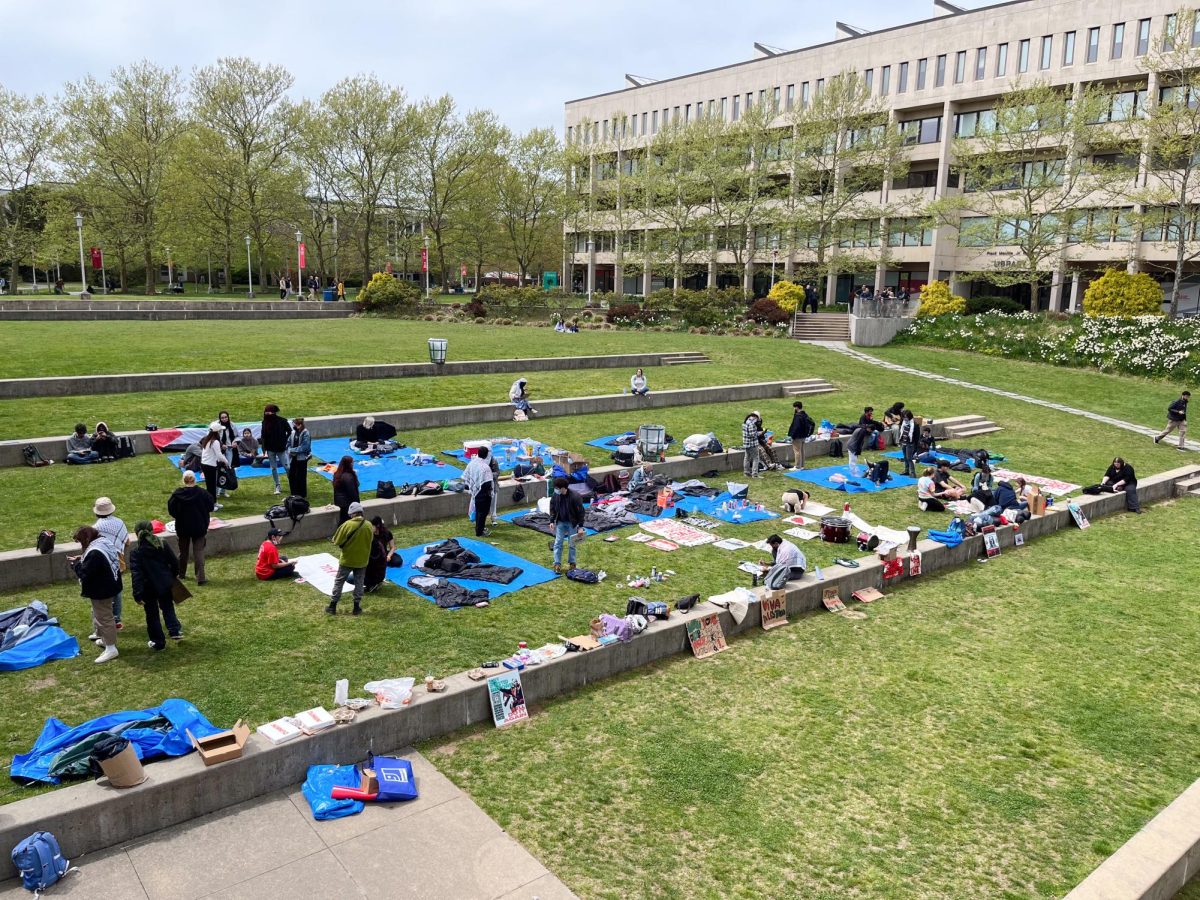
Stony Brook professor and urban planner Lee Koppelman, who made significant efforts to preserve open space, passed away on March 21 at Stony Brook University Hospital at 94 years old. Koppelman accomplished unprecedented achievements over the course of his career and shared his passion for the environment through his teachings.
Koppelman’s work led to Suffolk County becoming the first local government to create an official program that preserves land by buying developmental rights.
Koppelman was born on Aug. 19, 1927 in Manhattan, New York. He grew up in Astoria, Queens. Before he enlisted in the Navy, he was a student at Bryant High School in Astoria. He graduated from City College with a degree in electrical engineering and earned his master’s degree in planning at Pratt Institute and his doctorate in public administration from New York University.
“The value of open space stayed with Lee all his life,” marine sciences Professor David Bowman said. Bowman summarized the speech that Koppelman’s son, Keith Koppelman, made at his father’s funeral on March 24. He explained how his father grew fond of a chestnut tree near where he lived growing up. When he returned home from serving in the Navy, he was dismayed to find that the tree had been cut down to make room for tenement buildings.
Peter Salins, a political science professor at Stony Brook and the head of the Public Policy Department, described Koppelman as “the only person in the history of Long Island to seriously try to do some urban planning.” Koppelman started his iconic career in 1960 as the Director of Suffolk Planning Department and held the position until 1988.
According to Salins, Koppelman drew attention to Long Island’s economic, demographic and environmental entities during his tenure, despite the artificial county boundaries. This resulted in the bi-county board that Long Island has today.
Koppelman became the Executive Director of the Long Island Regional Planning Board in 1965, requiring him to tackle the urban planning of Long Island as a whole, not just in Suffolk County. This included designing the island and finding the most efficient ways to use land.
His ideas were unprecedented; his plans aimed at the growth of suburban areas, as well as improving the overall infrastructure of Long Island. He was bipartisan in his work.
He received major resistance from politicians, businesses and residents throughout the course of his career. In 2006, County Executives Tom Suozzi (Nassau) and Steve Levy (Suffolk) “conspired to push professor Koppelman out of that position, and there’s been no planning done since,” Salins said. “They didn’t want planning. It was inconvenient.”
Koppelman always valued Long Island’s best interest over any other factors. “He was always ethical; he was always trying to expose corruption,” said Professor Malcolm Bowman of Stony Brook University’s Marine Sciences Department. “You have to give him credit for that.”
Despite the challenges that Koppelman faced from push-back and the overall decentralization of Long Island, the determined urban planner was able to make strides to improve Long Island. For instance, Koppelman fought to save tens of thousands of Suffolk County acres of farmland and open space.
From 1999 to 2016, Koppelman held a chair on the Open Space Committee, a committee that advises the Town Board on its acquisitions of open space and farmland in Brookhaven. In 2015, he was awarded the Suffolk Medal for Distinguished Services by Steven Bellone for his environmental efforts.
He also successfully worked to extend the Long Island Expressway into the Hamptons, but his other plans for more efficient travel were shut down.
“He wanted to expand the quality of the Long Island Railroad,” stated Salins, who explained that if Koppelman’s plans were put into effect, it would take only half of the time to get to Penn Station via the Long Island Rail Road (LIRR). Salins clarified he did still make some improvements to the LIRR.
Koppelman was an avid supporter of affordable housing — housing that is affordable for those who make below the median income — but his ideas did not sit well with Long Island residents. “Long Island has been bitterly resistant to intelligent planning,” said Salins
Koppelman worked to protect Long Island’s vulnerable water supply. Most of Long Island’s water comes from wells that are susceptible to contamination from cesspools.
“Essentially, throughout his entire planning career, he was promoting things that would be good for the long term sustainability of Long Island; but in the short term, were inconvenient to existing residents, were costly to local governments, and undermined the profitability of developers and retailers,” Salins said. “It was always pushing this big stone uphill.”
The urban planner’s principles transferred into his teaching career as well. Koppelman was a leading professor and Emeritus professor at Stony Brook University in the Department of Political Science in the College of Arts and Sciences, as well as the Director of The Center of Regional Studies since 1988.
Koppelman was a guest lecturer in Bowman’s Contemporary Environmental Issues and Policies course, where he shared his knowledge with the class about the history and planning of Long Island.
“He was a wonderful teacher,” said Salins. “He always had by far the most glowing student evaluations, even better than mine.”
Koppelman leaves behind a legacy of honest work, environmental protection and revolutionary urban planning. He is survived by his wife Connie; children Lesli, Keith, Laurel and Claudia and three grandchildren Ora, Ezra and Dara.














Ray Warren • Dec 12, 2023 at 10:05 am
I am an alum from Class of 1974. I had the pleasure of taking Koppleman’s course, Politics of New York State. This was typically an oversubscribed course given in Lecture Hall 100 (400 capacity!) and again, typically upperclassmen had preferential access to this course. What was truly amazing about this course was his use of his background in NY State politics to bring to life how ‘things’ really got done in the legislature and ‘who owned whom’ (district leaders vs. legislators), and the corruption… Who can forget his description of Judge ‘Turn him loose’ Bruce Wright! He will certainly be missed!